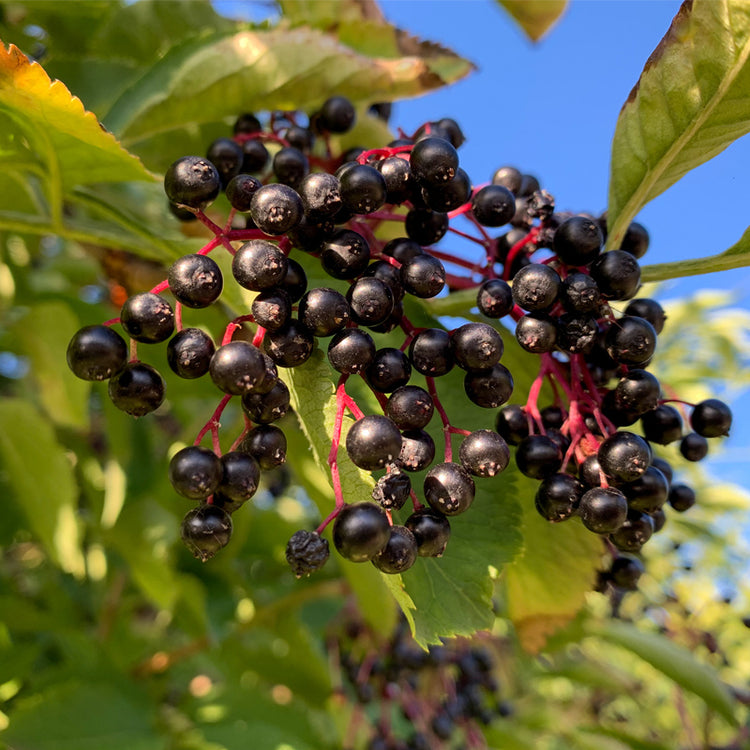
Elderberry Plants: A Medicinal and Edible Delight
Elderberry plants, scientifically known as Sambucus, are a fascinating and versatile group of shrubs and trees that have been cherished for centuries for their medicinal and culinary uses.
Varieties of Elderberry Plants
Elderberries belong to the Adoxaceae family and encompass various species and cultivars. Some of the most commonly cultivated elderberry varieties include:
-
Sambucus nigra: Also known as European elderberry, this species produces dark purple-black berries and is renowned for its medicinal properties and use in making elderberry syrup and wine.
-
Sambucus canadensis: Native to North America, the American elderberry boasts similar qualities to its European counterpart. Its berries are used in traditional Native American remedies and culinary preparations.
-
Sambucus racemosa: Commonly called red elderberry, this species is known for its striking red berries. While not as widely used as S. nigra or S. canadensis, it has its own unique qualities.
-
Cultivated Varieties: There are also cultivated elderberry varieties like 'York,' 'Adams,' and 'Johns,' which have been developed for their improved fruit production and disease resistance.
Characteristics of Elderberry Plants
Elderberry plants are typically deciduous, woody shrubs or small trees that can grow up to 10-15 feet in height. They are characterized by compound leaves with serrated edges and clusters of small, fragrant white or cream flowers blooming in late spring to early summer. These flowers are not only attractive but also essential for the development of elderberries.
The berries themselves are small and round and range in color from deep purple to red, depending on the species and variety. They are known for their sweet and tangy flavor, making them suitable for a wide range of culinary applications.
Growing Requirements
Elderberry plants are relatively easy to grow, making them an excellent addition to both home gardens and commercial farms. Here are some key considerations for successfully cultivating elderberries:
-
Location: Elderberries thrive in well-drained soil and prefer full sun to partial shade. Ensure they receive at least 6-8 hours of sunlight each day.
-
Soil: A slightly acidic to neutral pH soil with good organic matter content is ideal. Well-draining soil is crucial to prevent root rot.
-
Pruning: Regular pruning is necessary to maintain a healthy and productive elderberry plant. Remove dead or diseased branches and thin out overcrowded growth.
-
Pollination: While elderberries are self-fertile to some extent, having multiple plants can improve berry production. Cross-pollination can lead to more abundant fruit yields.
-
Watering: Elderberries require consistent moisture, especially during their first few years of growth. Mulching around the base of the plants helps retain soil moisture.
Benefits of Elderberry Plants
Elderberry plants offer an array of benefits, both culinary and medicinal*:
-
Nutrient-Rich Berries: Elderberries are packed with vitamins, antioxidants, and minerals, making them a nutritious addition to your diet.
-
Immune System Support: Elderberries are renowned for their immune-boosting properties and are often used to combat colds and flu.
-
Delicious Culinary Uses: Elderberries can be transformed into various culinary delights, including pies, jams, jellies, and wines.
-
Medicinal Uses: Elderberry syrup and extracts are popular remedies for respiratory infections, allergies, and inflammation.
-
Wildlife Attraction: Elderberry plants are a magnet for pollinators and birds, enhancing the biodiversity of your garden.
Elderberry plants are a valuable addition to any garden, offering delicious berries and a wide range of potential health benefits. Whether you are a novice gardener or an experienced herbalist, growing elderberries can be a rewarding and fruitful experience. Explore the different varieties, follow the cultivation tips, and reap the rewards of these versatile plants.
For more information, see our list of edible flowers.
* Not medical advice. See a health specialist for more details.
